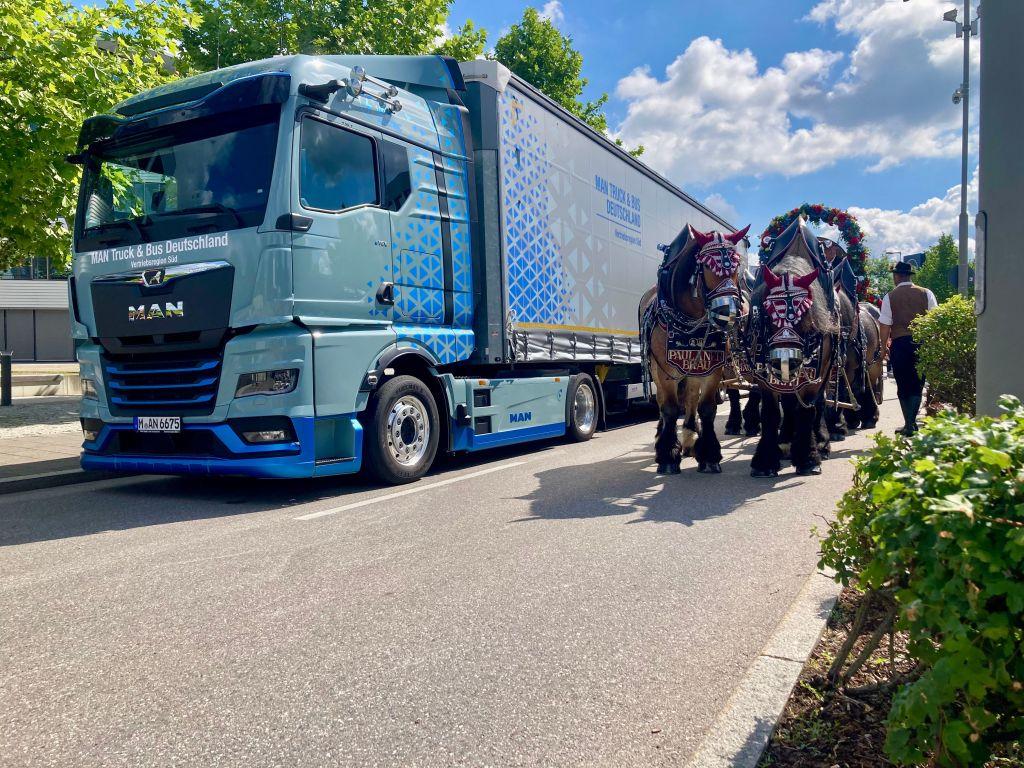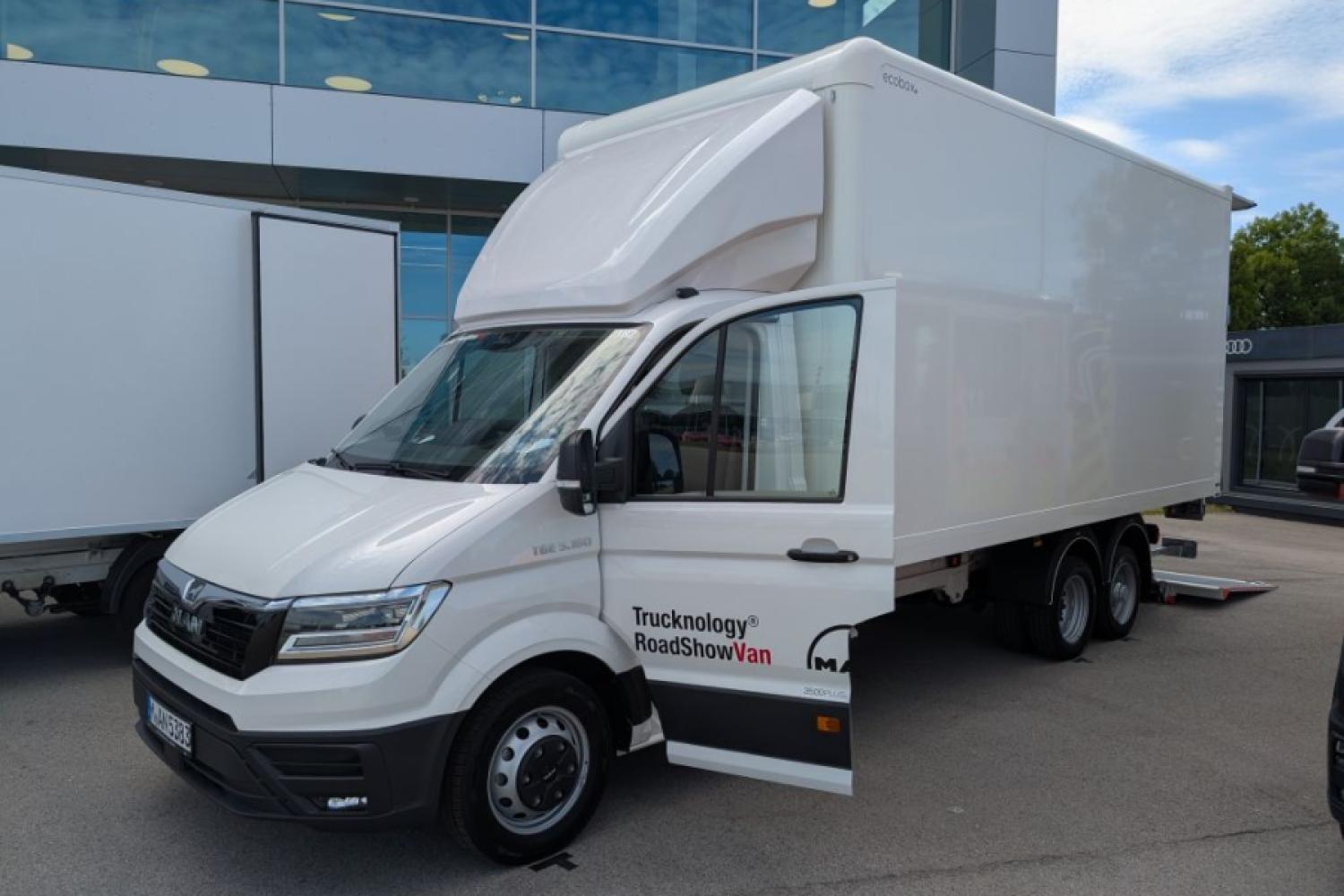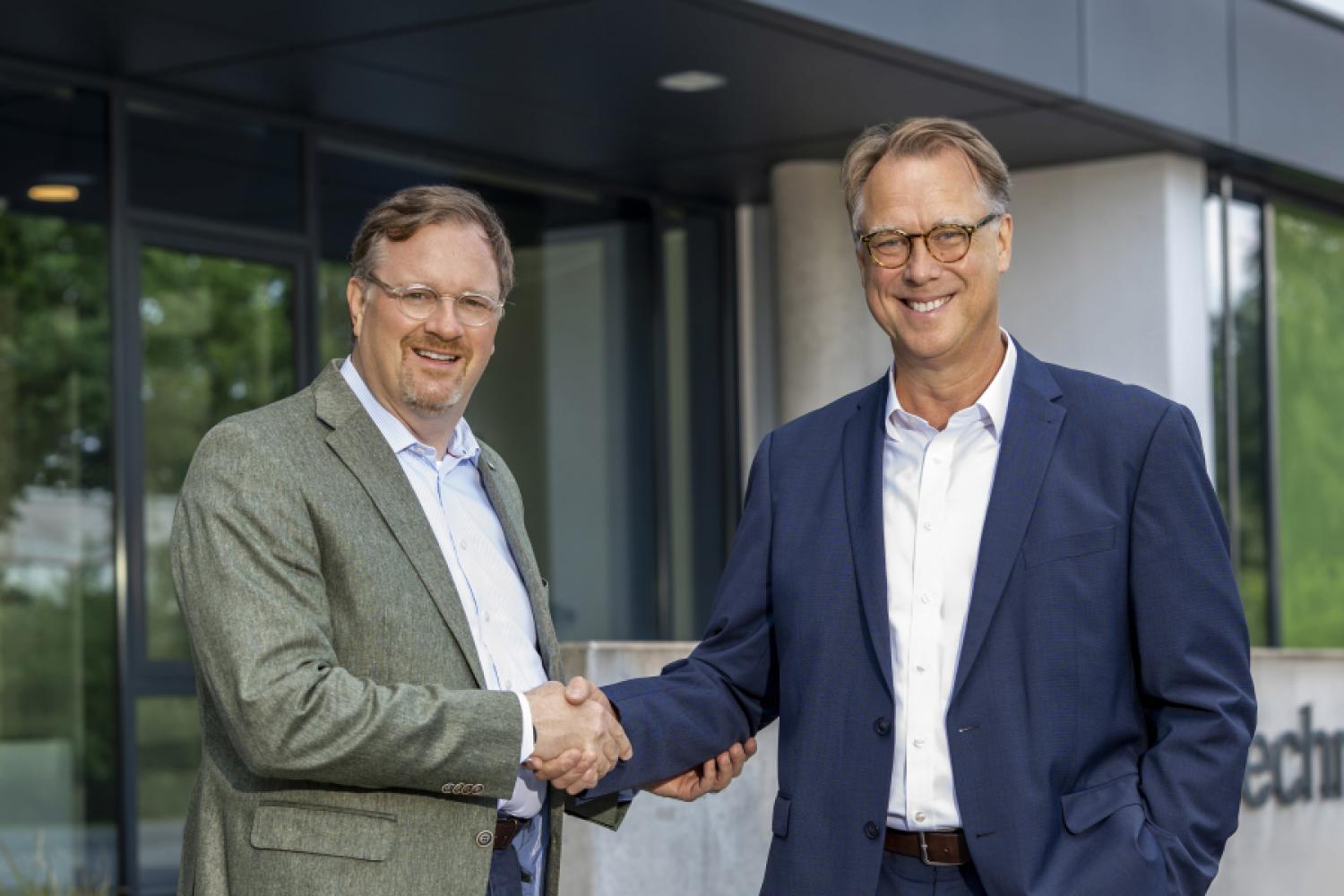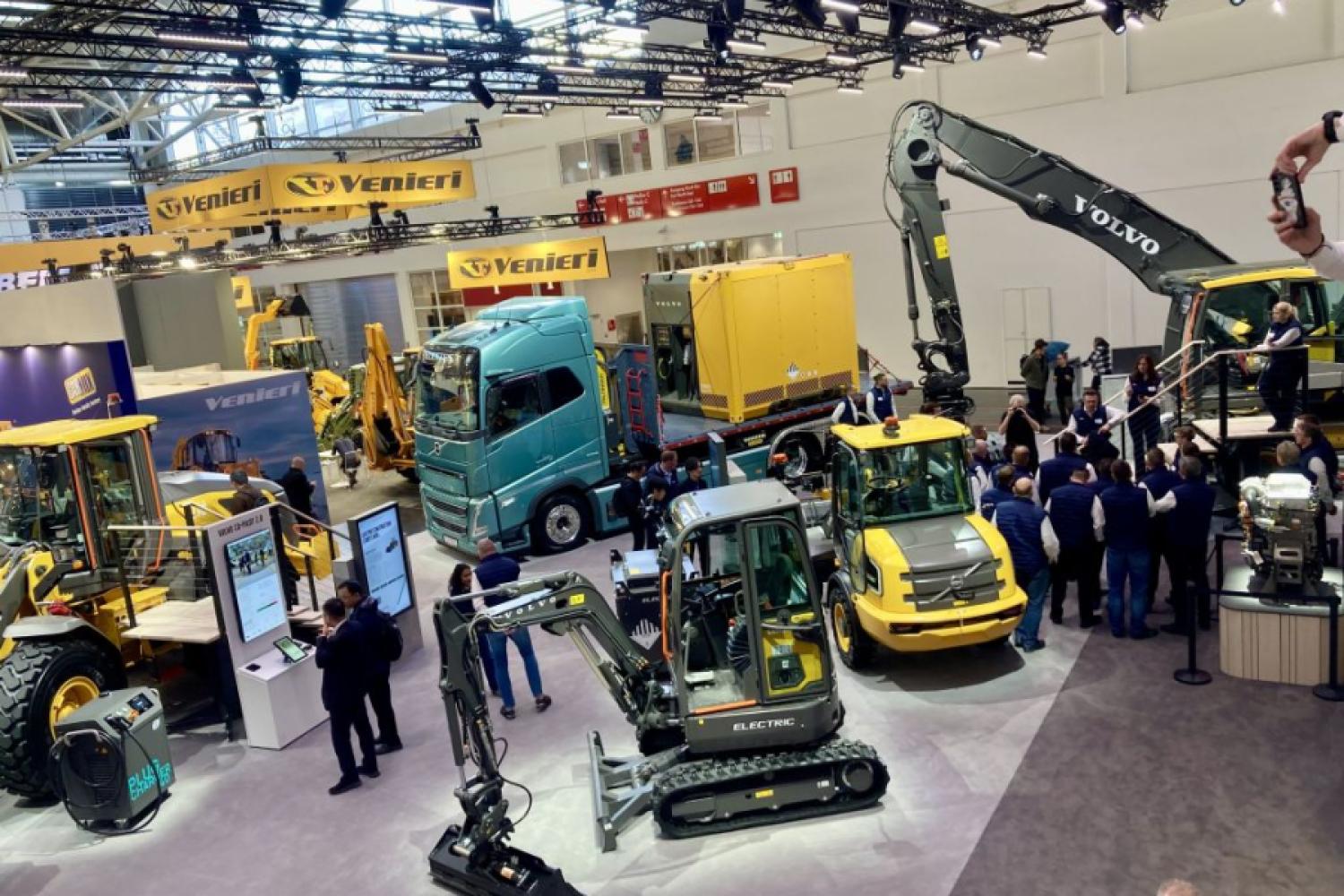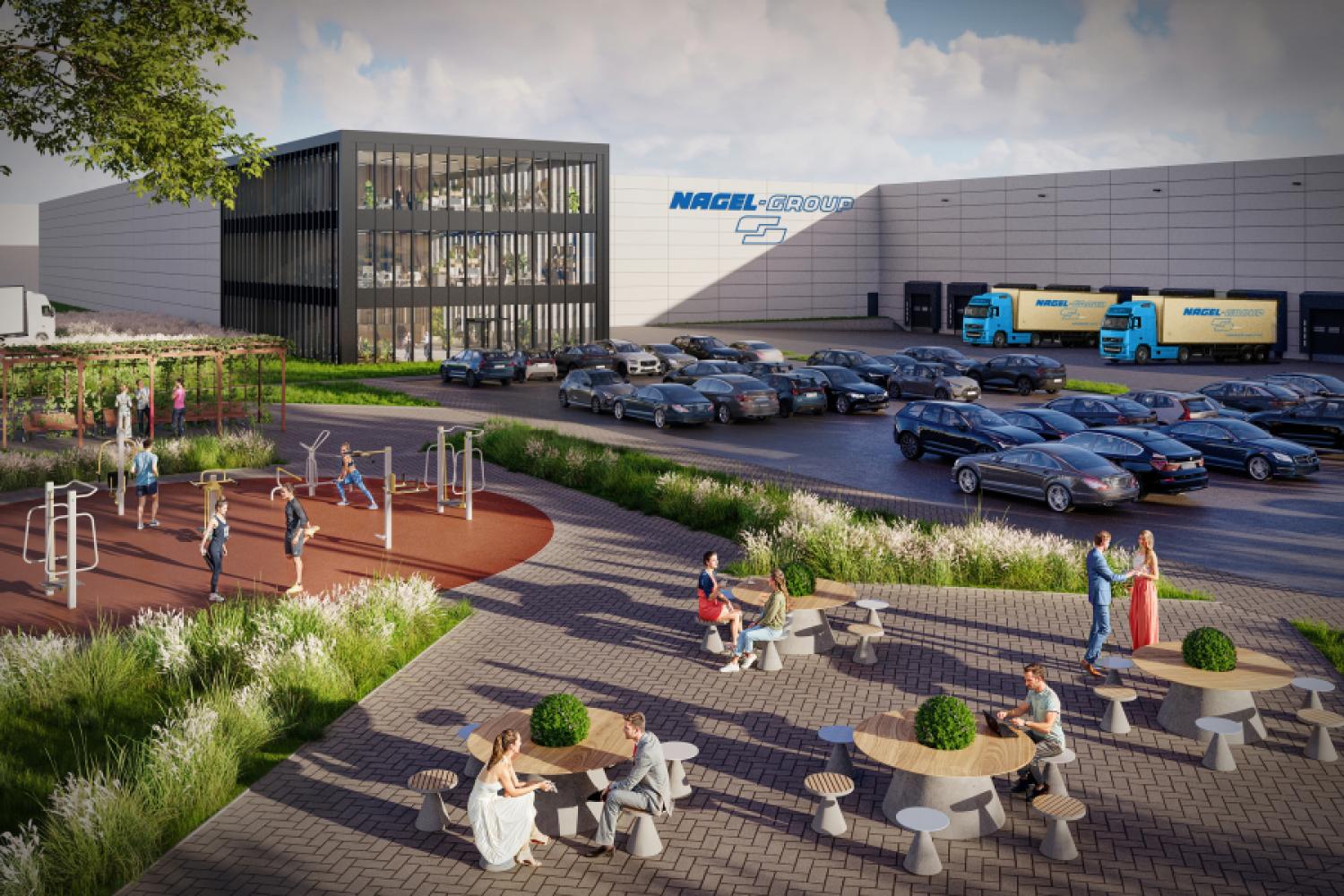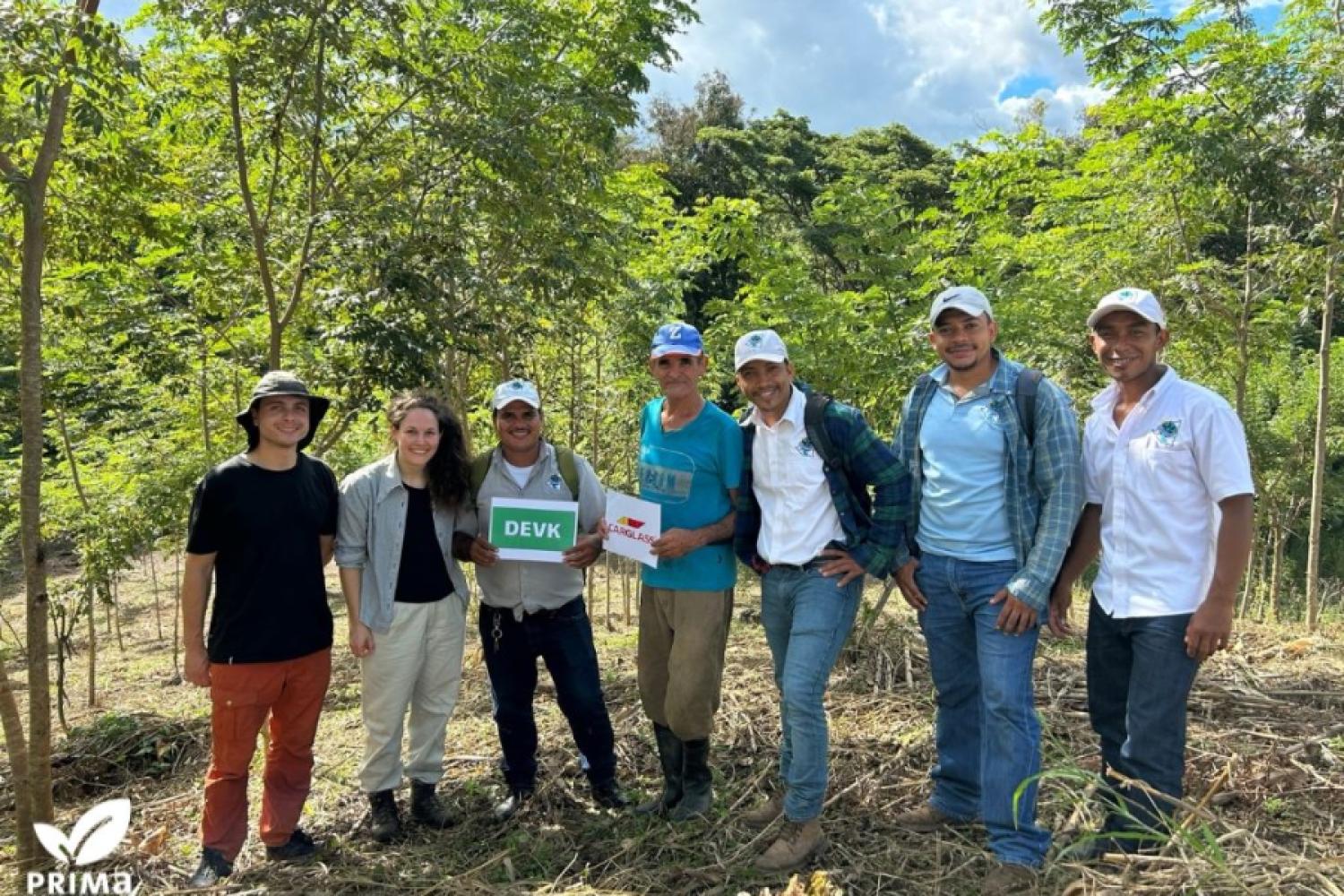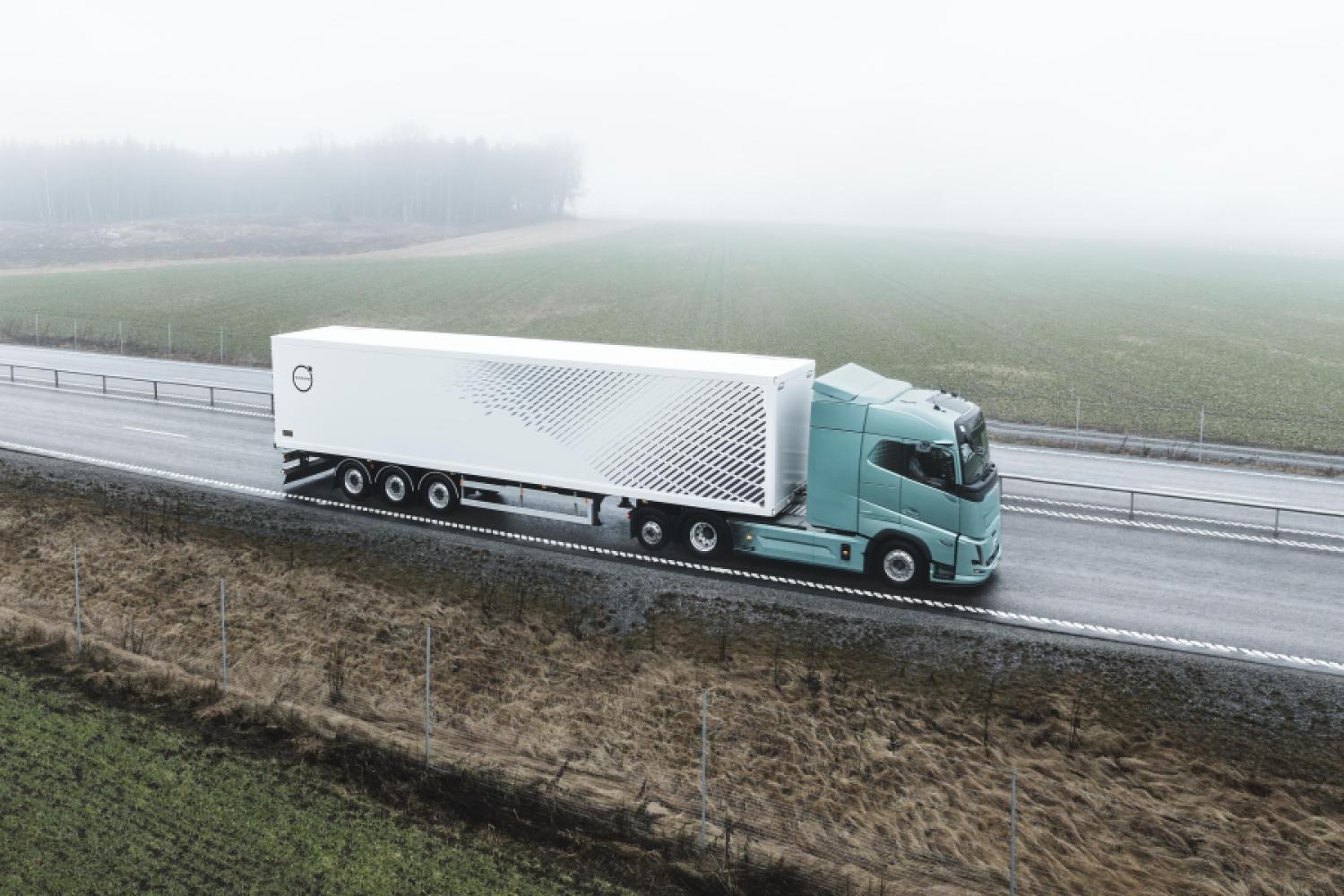Bavarian white and blue sky, brass band music, a classic horse-drawn carriage from the Paulaner Brewery, and behind it the whisper-quiet electric TGX: MAN celebrated 70 years at its Munich location. And it continues to make history at the traditional Munich site between the test track, neo-Gothic castle, and the most modern body construction. And not in a whisper: With the series production of the new eTruck "made in Munich," the commercial vehicle manufacturer sets a milestone in the transformation of mobility. "We can all be proud of the site's history," said MAN CEO Alexander Vlaskamp and added proudly:
"The development and series production of our eTruck is the latest evidence of the plant's innovative strength and adaptability, as well as a historic milestone for MAN and the site."
Between the lines, however, he also admitted that times used to be simpler: Over 9,000 people were once employed in Munich, now it’s around 8,000. The truck business is tough, and compared to the car sector, every margin point after the decimal must be fought for. But that's nothing new in the industry, and everyone "sticks together," or, as Vlaskamp puts it:
"Together, we have always found the right solutions for all challenges and have well connected history and modernity. The powerful tradition is also a good foundation on which the future
can be further built."
What sounds like a love declaration to the plant is in truth also a sober assessment of 70 years of industrial history at the location - with a progressively electrified horizon. By the way, the native Dutchman managed the keg tapping quite well: two strikes and the beer flowed!
A Celebration to Remember
Those who think engineers and workers can only celebrate construction data and production numbers learned otherwise: For the opening of eTruck production, the plant site was swiftly transformed into a small Oktoberfest – complete with a Ferris wheel. 40 meters high, 2,500 tons heavy, 200 seats – with views of the plant, city, and the Alps. The Landwermann family of showmen set up the spectacle – with logistical finesse and exclusively using MAN tow tractors. Why? "For reasons of quality and tradition," said the Landwermanns. A statement that could also stand in MAN's mission statement.
Between Horsepower and Electricity: The Beer Logistics
Of course, beer was not to be missed at this celebration – nor the traditional first tap. It arrived appropriately via Paulaner – not only on wheels but also on hooves: The Munich brewery delivered the beer both by eTruck and by horse-drawn carriage. The electric MAN trucks come from the first series vehicles, which Paulaner purchased directly after production started. Tradition
meets innovation – not only in the glass but also on the ramp.
High-Tech Meets Bouncy Castle – A Program for Young and Old
The event itself was like a comprehensive tour through the past, present, and future of mobility: Historic carousels and booths met artificial intelligence, with which kids could design their own future commercial vehicles. A brass band from Karlsfeld played along, while around 40 historic vehicles – from the beginnings to the new eTruck – made the development lines tangible in the truest sense. Among them were rare gems like the Underfloor 422 UXT or the TGX 680 with a V8 engine.
Even the current team buses of FC Bayern and TSV 1860 Munich rolled into the spotlight – football also connects here. Additionally, there was an old Neoplan, with which one could drive around the test area.
A Manufacture with History – and Future Potential
Around 8,000 employees develop and produce heavy trucks and components at the site. Since 1955, approximately 1.25 million trucks, two million cabs, and three million axles have been manufactured in Munich. The site covers around one million square meters – which is about 140 football fields. The drives are still supplied by the Nuremberg site, which burst at the seams in 1955, prompting a revisit to the pre-war connection with BMW: They
no longer needed the aircraft engine plant in Karlsfeld to the same extent after the war – and were happy to hand it over to MAN and MTU.
And while the Steyr site was given up and Vienna was reorganized with Rheinmetall, a new assembly plant was built in Krakow and Munich was further developed: With the construction of new paint and bodywork facilities, the Truck Forum, the Bus Forum, and a completely new engineering center. It stands in the middle of the test oval and, according to spokesman Gregor Jentzsch, has the largest lift in Europe: Whole commercial vehicles can be brought to the individual technical departments for inspection.
And also in terms of sustainability, it's moving forward at high speed: An own cogeneration plant ensures efficient energy supply, a geothermal project in Karlsfeld will heat both production and the local district heating network from 2028 onwards. Goal: minus 70% CO₂ emissions by 2030 compared to 2019 – nearly 60% had already been reached by the end of 2024.
What Does This Mean?
Tradition, technology, and a bit of folk festival romance – MAN proves that industrial culture and innovative spirit are not mutually exclusive. So, whoever thinks of electromobility in the truck sector in the future should perhaps also think of brass band music and an electrified cheer of
